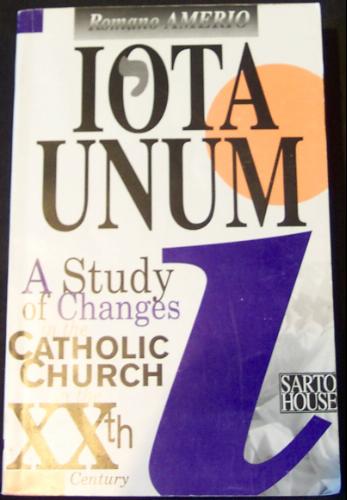
Caution: unlike other reviews here, this is not so much a completed review yet, but a review-in-progress. What in internet-ese I believe is called a “stub”: Something to be expanded later.
For now, I simply want to draw attention to this extraordinary book. With the breathtaking intelligence of a profound Thomistic mind, the author has created a tour de force.
It is a tour de force outlining, unlike any other book I know, the changes in the Catholic Church in the wake of the Second Vatican Council.
In more than 700 pages, a tremendous amount of material here is gathered and analysed with the sharpest precision. There is so much here about the Church before the Council, the Council itself, and the unhappy Hamlet – like Pontificate of Paul VI who emerges here in these pages, so often beautifully noble in aspiration, yet catastrophic in implementation …
And there are the consequences of the post-conciliar period across the global Church. The consequences in the liturgy, the Priesthood, the Religious Orders, schools, catechetics and more, much, much more.
The result is a deeply painful, yet incredibly important portrait of a Church sliding into a worldly, demythologised, subtly materialistic caracature of her former self.
I would like to say much more in this review in time to come. For now, I will simply say that I believe this book to be unequalled.
And that for anyone seeking to understand the issues here, I cannot recommend it highly enough.

Foreword for Monarchy by Roger Buck
Buying Books at Amazon Through These Links Gives Us a Commission. This Supports Our Apostolate. Thank You if You Can Help Us Like This!





Comments
comments are currently closed
4 responses to “Iota Unum by Romano Amerio (Review)”
[…] reading the chapter entitled Liturgical Reform, in Iota Unum, by Romano Amerio, many thoughts and feelings are with me. How to put into words that which I am […]
[…] is a Church, which it seems to me very nearly went under after Vatican II. In Iota Unum Romano Amerio does a superb work I think, in detailing the endless compromises of the unhappy […]
[…] as Romano Amerio has pointed out, the Last Supper is not simply a happy affair. It is a scene of cosmic tragedy: the Son of Man […]
Enjoy your informative website. Very interesting and easy to read. Thank You.